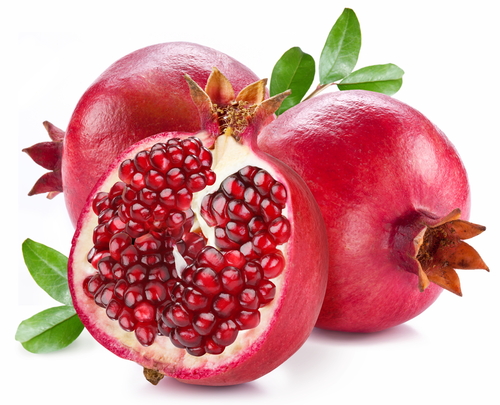Compound Found in Pomegranates May Prevent or Slow Alzheimer’s Disease
Written by |

 The onset of Alzheimer’s disease, as well as its symptoms, may be slowed down by a natural compound present in pomegranates, according to research conducted at the University of Huddersfield, in West Yorkshire, UK. During his two-year project, Dr. Olumayokun Olajide, a specialist in anti-inflammatory properties of natural products, not only discovered the benefits of pomegranate in Alzheimer’s disease, but also that it may help reducing the painful inflammation caused by diseases like rheumatoid arthritis and Parkinson’s disease.
The onset of Alzheimer’s disease, as well as its symptoms, may be slowed down by a natural compound present in pomegranates, according to research conducted at the University of Huddersfield, in West Yorkshire, UK. During his two-year project, Dr. Olumayokun Olajide, a specialist in anti-inflammatory properties of natural products, not only discovered the benefits of pomegranate in Alzheimer’s disease, but also that it may help reducing the painful inflammation caused by diseases like rheumatoid arthritis and Parkinson’s disease.
Punicalagin, the polyphenol chemical compound found in pomegranate, is able to block the inflammation of certain cells of the brain, the micrologia, which are responsible for the deterioration of more brain cells, causing the worsening of Alzheimer’s, as stated by the breakthrough findings of the study. The scientist believes that punicalagin may be a way of preventing or slowing down the development of the disease, for which there is no known cure.
Working in collaboration with researchers from the University of Huddersfield’s Department of Pharmacy and from the University of Freiburg in Germany, Dr. Olaije tested his theory on isolated brain cells from rats. The results of the study have been published at the latest issue of the Molecular Nutrition & Food Research journal, entitled, “Punicalagin inhibits neuroinflammation in LPS-activated rat primary microglia,” and the researcher is now going to start attending academic conferences to present his findings. However, the research team is still working to understand the amount of pomegranate needed for the compound to be effective with Alzheimer’s.
[adrotate group=”3″]
“But we do know that regular intake and regular consumption of pomegranate has a lot of health benefits, including prevention of neuro-inflammation related to dementia,” explained Olaije, who also recommended the consumption of 100 percent pomegranate products, which contain about 3 to 4 percent punicalagin.
Dr. Olaije also explained that the anti-oxidant compounds of the fruit are present mainly in the outer skin, and not inside. He also believes that pomegranate can help with any condition that causes inflammation, and not only neuro-inflammation, which includes rheumatoid arthritis, Parkinson’s and cancer, although he hasn’t yet been able to prove it scientifically.
The next step for the scientist is to start studying the possibility of developing new drugs able to target the development of dementia based on the compound found in pomegranate in order to treat Alzheimer’s, a disease that affects approximately 44.4 million people in the world. Olajide is already working with the organic chemist Dr. Karl Hemming, also from the University of Huddersfield, to develop compound derivatives of punicalagin, designed to be the basis of new, orally administered drugs to treat neuro-inflammation.





